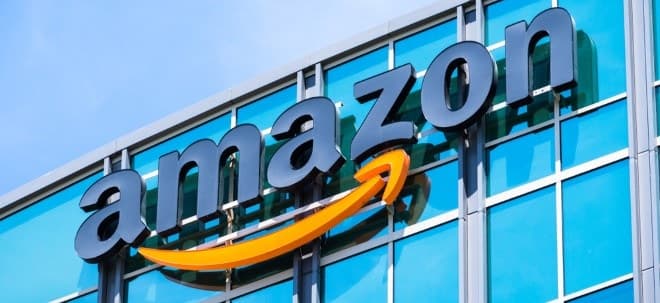Amazon Stock in Focus After Billion-Dollar Deal with OpenAI - Analysts See Further Upside Potential

News Summary
Amazon Web Services (AWS) and OpenAI have announced a multi-year strategic partnership, valued at approximately $38 billion, to run the ChatGPT developer's AI workloads on Amazon's cloud infrastructure. The agreement grants OpenAI immediate access to AWS's computing power, consisting of hundreds of thousands of NVIDIA GPUs, with an option to expand capacity to 10 million CPUs by 2027. This collaboration aims to operate OpenAI's AI applications more efficiently and scalably. Yahoo Finance reports that OpenAI will utilize NVIDIA GPUs on Amazon's servers for its generative AI applications, with full capacity expansion expected by the end of 2026. The move also extends OpenAI's existing agreements with other cloud and chip providers such as Oracle, CoreWeave, Broadcom, AMD, and NVIDIA itself. Following the announcement, Amazon's stock rose about 4% at the beginning of November, gaining 12% over the past five trading days and 16% year-to-date. Analysts are largely positive on the deal, with Wedbush's Scott Devitt raising Amazon's price target from $330 to $340 and maintaining a "Buy" rating. TD Cowen and Bank of America also reiterate "Buy" ratings, viewing the cooperation as a significant growth driver for AWS's cloud business. Currently, all 41 analysts tracked by TipRanks recommend buying Amazon stock, with an average price target of $295.62, implying about 18% upside, primarily driven by AWS's robust cloud business, which saw a 20% revenue increase in Q3 2025.
Background
In recent years, there has been a significant surge in demand for high-performance data centers to support the development of advanced technologies like generative artificial intelligence. OpenAI, as an industry leader, requires immense computing resources for training and running its AI models, which has led it to establish partnerships with multiple cloud service providers and chip manufacturers. Concurrently, the AI market has seen numerous multi-billion dollar deals, raising concerns about potential overheating in the sector. Reports suggest that OpenAI's infrastructure costs could exceed $1 trillion by the end of the decade, while its revenues currently fall well short of this figure, highlighting the challenges of AI technology commercialization and cost control.
In-Depth AI Insights
Beyond the immediate revenue boost for AWS, what do the true competitive dynamics within the generative AI and cloud infrastructure sectors signal from this massive $38 billion deal? - This deal solidifies AWS's position as a critical infrastructure provider for leading AI developers, making it harder for challengers to gain significant market share. It suggests a "winner-takes-most" dynamic in high-end AI compute. - While AWS is a major partner, OpenAI's continued agreements with Oracle, CoreWeave, Broadcom, AMD, and NVIDIA itself indicate a calculated strategy to diversify its infrastructure dependencies. This mitigates risks associated with over-reliance on a single provider and potentially leverages competitive pricing. - The transaction highlights the immense capital requirements for AI development, pushing cloud providers like Amazon to offer comprehensive, high-performance solutions. This anticipates deeper cloud provider involvement in the AI supply chain to meet client demands for customization and efficiency. Given the potential for OpenAI's infrastructure costs to reach a trillion dollars, how does it balance rapid expansion with commercial profitability? What does this imply for Amazon's investment return? - OpenAI's enormous infrastructure costs starkly contrast its relatively lower revenues, indicating that its core strategy currently prioritizes market share acquisition, accelerated technological iteration, and ecosystem building over short-term profitability. This "burn cash now, profit later" model is not uncommon in tech, but the scale is unprecedented. - For Amazon, OpenAI's expansion is undoubtedly a massive revenue stream for AWS. This deal secures stable demand for high-margin computing services for years. Despite OpenAI's profitability challenges, as long as its status as an AI innovation leader remains, its infrastructure spending will be prioritized over short-term financial performance for AWS. - Amazon's move is a strategic investment, not short-term arbitrage. It aims to lock in an AI leader within its ecosystem, thereby attracting more AI innovators and workloads. By becoming the "shovel seller" in the AI arms race, Amazon finds a certain growth point amidst AI commercialization uncertainties. Considering the potential regulatory stance of the incumbent Trump administration towards tech giants, what non-commercial risks might this large-scale partnership between Amazon and OpenAI face? - The Trump administration has consistently focused on the market dominance of large tech companies. The AWS-OpenAI partnership further entrenches Amazon's leadership in cloud services, potentially inviting antitrust scrutiny. Regulators might be concerned that this deal restricts competition in the AI infrastructure market or grants AWS undue influence over the AI ecosystem. - Data sovereignty and national security are priorities for the Trump administration. As an infrastructure provider handling sensitive AI workloads, AWS could face increased compliance demands for data storage, processing, and access, especially concerning data from users outside the US. Any data breach or security incident could quickly escalate into a political issue. - Furthermore, there are growing concerns about the ethics and safety of AI technology itself. As a host for leading AI models, AWS could be implicated in potential misuse or bias issues associated with OpenAI's models, indirectly impacting its reputation and business. The Trump administration may impose stricter regulations on AI development and deployment through executive orders or legislation, thereby affecting the business model of such collaborations.